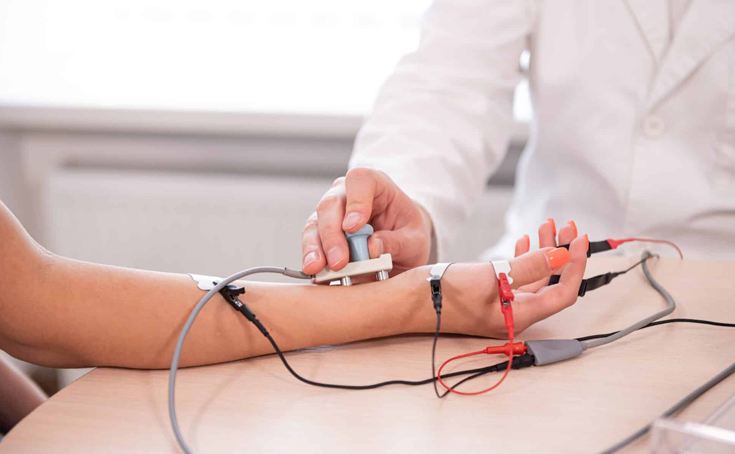
Nerve Conduction Studies (NCS) and Electromyography (EMG)
Nerve Conduction Studies (NCS) and Electromyography (EMG) are diagnostic tests that evaluate the function of the nervous system, particularly the peripheral nerves and muscles. These tests help identify nerve damage, muscle disorders, or communication problems between nerves and muscles.
Nerve Conduction Studies (NCS)
NCS assess how well electrical signals travel through a nerve. Small electrodes are placed on the skin over specific nerves. A mild electrical impulse is delivered, and the response is recorded. This measures the speed and strength of nerve signal transmission.
Electromyography (EMG)
EMG evaluates the electrical activity of muscles. A thin needle electrode is inserted into the muscle to record its electrical activity at rest and during movement. This helps detect abnormalities in muscle function or nerve supply to muscles.
Symptoms Suggesting NCS/EMG
NCS/EMG may be recommended for symptoms such as:
- Numbness or tingling
- Muscle weakness
- Pain, particularly in the arms, hands, legs, or feet
- Muscle cramping or spasms
- Abnormal sensations (burning or prickling)
- Loss of function in limbs
Common Causes for Testing
- Nerve Disorders: Peripheral neuropathy, carpal tunnel syndrome, Guillain-Barré syndrome, or radiculopathy (pinched nerves).
- Muscle Disorders: Myopathy or muscular dystrophy.
- Neuromuscular Junction Disorders: Myasthenia gravis.
- Systemic Conditions: Diabetes, hypothyroidism, or autoimmune diseases affecting nerves.
- Trauma or Injury: Nerve compression or damage.

